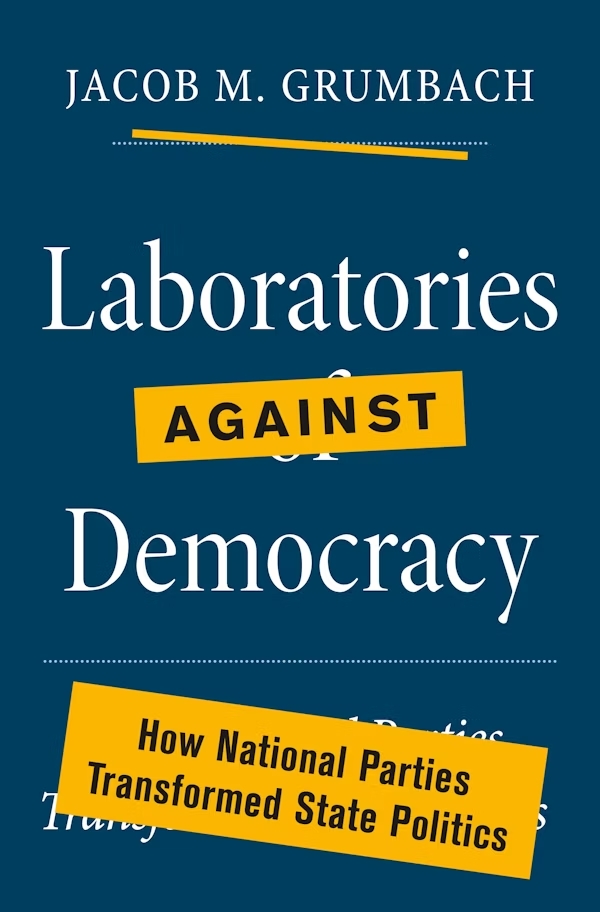Laboratories of Plutocracy
In Laboratories Against Democracy, Grumbach offers both a thoughtful examination of US federalism’s inherent perils and limits and a searching interpretation of how they are compounded in our current political climate. The picture is not a pretty one. “Rather than ushering in democratic responsiveness, social harmony, and economic prosperity,” Grumbach writes, devolution “since the 1970s has coincided with a weakening of democratic institutions, the precipitous rise of economic inequality, and growing mass polarization and discontent.”
The core argument — developed over a series of chapters and underwritten by a close analysis of the available data — is this: Political polarization since the 1970s has yielded policy paralysis at the national level, where control over the executive and legislative branches has been consistently divided. That gridlock has shifted political attention to the states. In the states, however, polarization is far more likely to take the form of unified “trifecta” control by one party. The result is wider variation across the states — Republican states lurching right, Democratic ones tugging left — in almost every realm of policy, with the notable exception of the bipartisan investment in mass incarceration.
The polarization of policy, as Grumbach argues, is driven not by a polarized electorate (on most issues, polling shows a widening gap between policy outcomes and popular aspirations) but by the ability and willingness of national political interests to capture state policymaking. These interests (including national partisan groups like the Republican Governors Association, multi-issue clearinghouses like the right-wing American Legislative Exchange Council, and single-issue lobbies like the antiabortion National Right to Life) have both the willingness and the capacity to push their agendas across venues and jurisdictions.
The result is distorted policy within the states and across them. Hard-line measures (like race-to-the-bottom minimum wage rates and refusals to expand Medicaid) fly in the face of the interests and preferences of most ordinary people. And to the degree that states look to each other as policy laboratories, their attention is confined to ideological peers and their experiments become a form of partisan leapfrog: who can legislate the strictest abortion ban, the most scurrilous attack on public sector workers, the leanest and meanest social policies.
The threat to democracy, according to Grumbach, is threefold. First, state policy decisions, shaped largely by national and partisan interests, are increasingly divorced from what the average person wants or needs. States have been pushed to the fore not because they are uniquely responsive or accountable, but because they are so readily captured by well-resourced interests.
